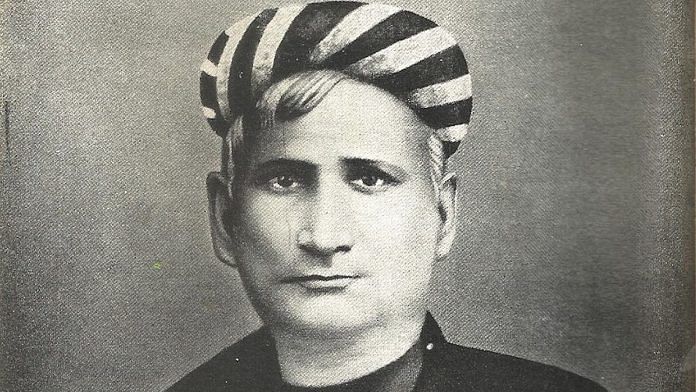When Sri Aurobindo delivered his speech in Uttarpara in 1909, his audience was only beginning to digest what Bankim Chandra Chatterjee had said in Anandamath 30 years before. In his insightful and eloquent words, Sri Aurobindo pointed out what India had been lacking — the nation and its people were yet to ‘know’ themselves.
In his speech, Sri Aurobindo had said: “There is the sentiment of Indianism, there is not yet the knowledge. There is a vague idea, there is no definite conception or deep insight. We have yet to know ourselves, what we were, are and may be; what we did in the past and what we are capable of doing in the future; our history and our mission.”
Bankim Chandra’s Bande Mataram was precisely what Sri Aurobindo was referring to when he was talking about the country — that India was not an ordinary mass of land or a fractured nation ripped apart by diverse cultures, but a motherland, which had been chained. In a moment of inspiration from the divine, Bankim brought all that India needed.
Bankim Chandra was born at a time when the nation’s soul had been chained by various events. In the mid-19th century, Indian society was reeling from the absurdity of the ruling class and the domination of foreign powers. There was slavery, loot and rot. The nation was in danger and the national consciousness had started decaying.
Bankim Chandra, a modern and innovative thinker, wanted to change that.
In the words of Sri Aurobindo, “fifty-six years of (Bankim’s) laborious life were a parcel of the most splendid epoch in Bengali history; yet among its many noble names, his is the noblest.”
Also Read: Bankim Chandra — the man who wrote Vande Mataram, capturing colonial India’s imagination
Bharat’s ‘missing components’
Bankim recognised, during his lengthy tenure as district sub magistrate between 1858 and 1891, that Indians were missing two critical components that united societies.
First, the nation was missing the linguistic prowess required for the country’s future. And second, the nation was missing an emotional connection to the motherland. With a single poem, he provided both. In Bengali Sanskrit, he democratised the language and gave it the political impetus it lacked — a song of ‘Bharat’ that could be sung by anybody. By doing so, he invented a medium through which everyone could express their devotion to the motherland.
Bankim was able to comprehend the hollowness of India’s political, social, and cultural servitude throughout his brief career by visiting the remotest parts of Bengal and observing the country’s predicament.
He was the first of our great public intellectuals to see the futility of the prevailing political agitation and mercilessly ridiculed them in his Lok Rahasya and Kamalakanter Daptar. However, as saints and seers are, Bankim was not happy with criticism alone; he felt the need to construct something. He needed a vision that fulfilled both him and the purpose of Bharat’s salvation.
Also Read: Anand Math is the anti-establishment film to watch and learn from
India’s means of expression
Bankim Chandra recognised that the imperial power was stronger, and caused a deliberate annihilation of India. He saw that India needed strength to be more formidable. Towards this goal, Bankim preached from his masterpieces, Anandamath and Devi Chaudhurani. According to Sri Aurobindo, “the Mother of his vision held trenchant steel in her twice seventy million hands and not the bowl of the mendicant.”
Bankim delivered to India a means of expression that its people could understand and relate to, using symbols from the Vedas and Sanatana Dharma.
Sri Aurobindo has pointed out: “No nation can grow without finding a fit and satisfying medium of expression for the new self into which it is developing — without a language which shall give a permanent shape to its thoughts and feelings and carry every new impulse swiftly and triumphantly into the consciousness of all.” It was the crowning achievement of Bankim’s devotion to India that he was able to provide such an ideal and gratifying medium for the race that stood at its advance.
Bankim bestowed to our country a vision and a medium for reciting the mantra for our motherland.
Vivek Ji is a speaker, writer, calligrapher, and founder of AHA. He tweets at @vivekji. Views are personal.



